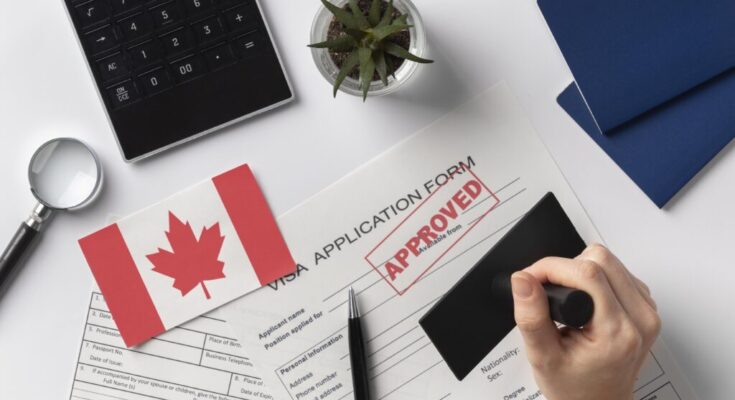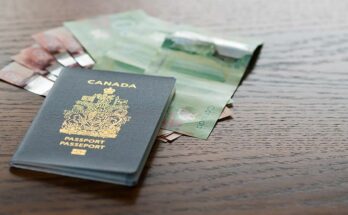Planning to migrate to Canada? Excited to start a new life in one of the most immigrant-friendly countries in the world? Before you get too far ahead, let’s talk about the foundation of your application—the documents required for Canada PR.
Missing paperwork can delay or derail your dreams of starting fresh in Canada. So, let’s make sure your checklist is complete.
Key Documents Required for Canada PR
Educational Credential Assessment (ECA)
What is an ECA?
An Educational Credential Assessment (ECA) verifies that your foreign education matches the Canadian education system. It’s a mandatory document for most immigration programs, including Express Entry.
Recognized Organizations for ECA
You must get your credentials assessed by a recognized organization like:
- World Education Services (WES)
- International Credential Assessment Service of Canada (ICAS)
- Comparative Education Service (CES)
The results usually take 4-6 weeks, so start this process early.
Language Proficiency Test Results
IELTS or CELPIP for English
Language skills are a cornerstone of Canada PR eligibility. You’ll need to prove your English proficiency through tests like IELTS (International English Language Testing System) or CELPIP (Canadian English Language Proficiency Index Program).
TEF or TCF for French
If you speak French, you can earn additional points for programs like Express Entry. Tests like TEF (Test d’Évaluation de Français) or TCF (Test de Connaissance du Français) are required.
Valid Passport
Why is a Passport Essential?
A valid passport acts as your primary identification. Without it, your application cannot proceed.
Requirements for Passport Submission
Ensure your passport has sufficient validity—preferably covering the next 12-18 months. Include scanned copies of all relevant pages.
Proof of Work Experience
Employment Reference Letters
To demonstrate your work experience, include reference letters from previous and current employers. These letters should detail:
- Job title
- Employment period
- Key responsibilities
- Contact information of the employer
Pay Stubs and Job Contracts
Supporting documents like pay slips and employment contracts strengthen your case.
Proof of Funds
Minimum Fund Requirements
You’ll need to prove that you have sufficient funds to support yourself and your family in Canada. The amount depends on the size of your family.
Documents That Qualify as Proof
Acceptable proof includes:
- Bank statements
- Fixed deposits
- Property sale agreements (if applicable)
Additional Documents Based on Program Type
Family Sponsorship
Proof of Relationship
If applying through family sponsorship, provide documents like birth certificates or marriage certificates to establish the relationship with the sponsor.
Sponsorship Undertaking Forms
The sponsor needs to submit forms agreeing to financially support you for a set period.
Provincial Nominee Program (PNP)
Nomination Certificate
Each province has its own PNP, and if you’re nominated, you’ll need to include your certificate.
Additional Province-Specific Requirements
Provinces may ask for extra documents, such as letters of intent to settle in the province or job offer letters.
Express Entry Program
Comprehensive Ranking System (CRS)
Your CRS score determines your eligibility for Express Entry. Accurate documentation boosts your score.
ITA-Related Document Checklist
After receiving your Invitation to Apply (ITA), you must submit all documents within 60 days.
Medical and Security Requirements
Medical Examination Report
Approved Panel Physicians
A medical exam is required and must be conducted by a panel physician approved by Immigration, Refugees, and Citizenship Canada (IRCC).
Validity of Medical Reports
Medical reports are valid for 12 months, so time your examination carefully.
Police Clearance Certificate
How to Obtain PCC?
You must obtain a Police Clearance Certificate (PCC) from every country you’ve lived in for six months or more since turning 18.
Countries Requiring PCC
Depending on your travel history, you may need multiple PCCs.
Miscellaneous Documents
Marriage or Divorce Certificates
If applicable, these documents prove your marital status and must be translated if not in English or French.
Dependent Children’s Documents
Birth Certificates
Submit birth certificates to prove the relationship with dependent children.
School Records
Older children’s school transcripts may also be required.
Digital Photos
Photo Specifications
Follow IRCC’s guidelines for photo size, resolution, and background.
Importance of Proper Photo Submission
Incorrect photos can delay your application, so double-check the specs.
Tips for Organizing and Submitting Your Documents
Create a Document Checklist
Keep track of required documents by creating a detailed checklist.
Double-Check for Consistency
Ensure all documents are consistent—spelling errors or mismatched information can lead to delays.
Keep Copies of Everything
Save digital and physical copies for your records. You never know when you might need them.
Conclusion
Migrating to Canada is a life-changing decision, but getting there requires meticulous preparation. Having the correct documents not only speeds up your application but also improves your chances of success. Take your time to gather, organize, and double-check everything.



